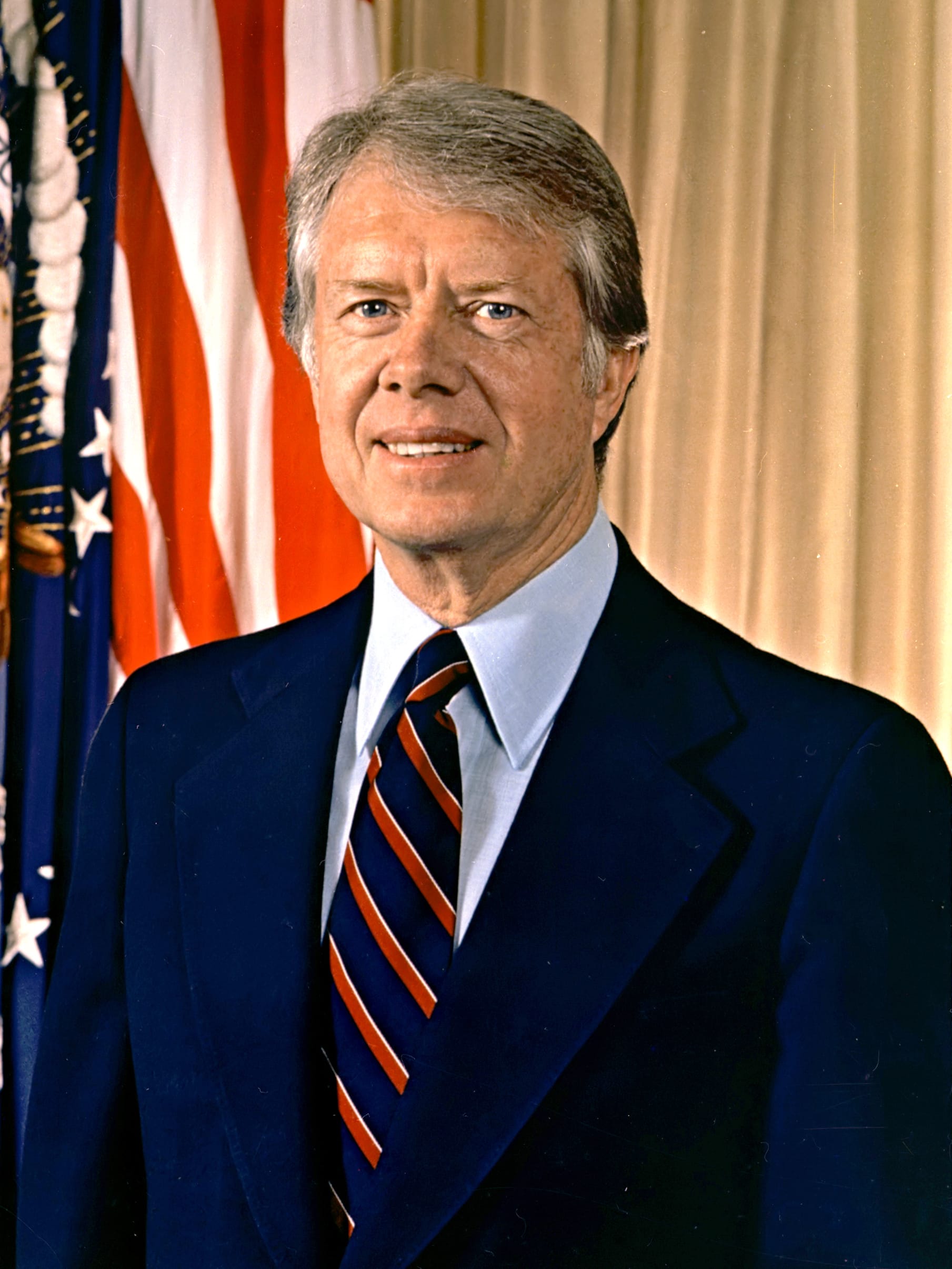A boat crowded with Cuban refugees arrives in Key West, Florida, during the 1980 Mariel Boatlift. / U.S. Department of Homeland Security
Jimmy Carter’s legacy of hope to those fleeing humanitarian crisis
Former President James Earl Carter lived and died with dignity. An underestimated president, Carter gave much to the American people and even more to millions overseas who faced persecution and human rights abuses at home. I had the honor of serving in the Carter Administration as research director for the Select Commission on Immigration and Refugee Policy. I observed his leadership — and some of the problems he experienced — in formulating and implementing asylum and refugee resettlement policy. His successes and failures provide lessons for the future.
In 1979, record numbers of refugees fled Vietnam, Cambodia, and Laos by land and sea, finding their way to Thailand, Malaysia, Indonesia, Hong Kong, and the Philippines. Pirates in the South China Sea began to target and often kill “boat people” (as the refugees were often called). At the same time, Thailand and Malaysia took action to prevent the entry of refugees into their countries.
Recognizing a crisis in the making, the United States called for an international conference to find solutions. President Carter sent Vice President Walter Mondale to Geneva as chair of the conference with the authority to commit the U.S. to accepting 14,000 refugees per month (168,000 per year), as needed. This led to significant similar pledges from Canada, Australia, France, Britain, and other countries. These promises for resettlement convinced Southeast Asia to keep its borders open and allow aid organizations to operate in refugee camps. Vietnam pledged to institute an orderly departure program so that refugees would not need to risk their lives in the South China Sea. A new system for rescuing refugees at sea was also put into place. Thousands of lives were saved from this holistic approach.
While addressing the crisis in Southeast Asia, President Carter worked with members of Congress — in particular Senator Edward Kennedy — to adopt the Refugee Act of 1980. The Act adopted a new definition of refugees and asylum seekers that comported with — and even went beyond — the UN Convention on the Status of Refugees. In it, refugees were defined as people fleeing a well-founded fear of persecution based on race, religion, nationality, membership in a particular social group, and political opinion. The legislation applied not only to those who had already fled their countries of origin but also to those still in these countries who otherwise met the definition. The legislation gave priority for admission to refugees of ‘special humanitarian concern’ to the United States. The President had the authority to determine how many refugees would be admitted each year after consultation with Congress. The legislation included a special process for exceeding that number in case of emergencies mid-year. The law also created a system for assisting refugees who were admitted, and the role of state governments and nonprofit organizations in providing them aid.
Before the Refugee Act could be fully implemented, a new crisis emerged with the Mariel Boatlift. Discontent with conditions in Cuba had been brewing for years. Within a few weeks, about 125,000 Cubans entered the United States, many on boats sent by relatives in Miami. In a speech at a League of Women Voters convention, President Carter promised to “provide an open heart and open arms to refugees seeking freedom from Communist domination and from economic deprivation, brought about primarily by Fidel Castro and his government.”
Not everyone agreed with his immigration policies. As the number of arrivals grew, along with complaints from Florida and beyond about the newcomers, the administration took action to curb movements. The political damage could not be undone, however. Along with high inflation, the hostages in Iran, and other issues, immigration became a major roadblock to President Carter’s re-election.
As the country mourns the death of Jimmy Carter, many have spoken about his commitment to human rights. His compassion and concern for the rights of the most vulnerable only grew after his presidency. As recently as 2022, he issued a statement with his wife, Rosalynn, that epitomized his views on refugees:
“Our nation has long been a beacon of hope for those fleeing violence or persecution. As honorary co-chairs of Welcome.US, we urge Americans to open their hearts to these refugees and support them as they work to build new lives here among us. We stand with the people of Ukraine in their courageous fight for democracy and freedom.”
President Carter was willing to risk his presidency to do the right thing for those in need. He will be missed.

Susan Martin is the Donald G. Herzberg Professor Emerita of International Migration at Georgetown University.


